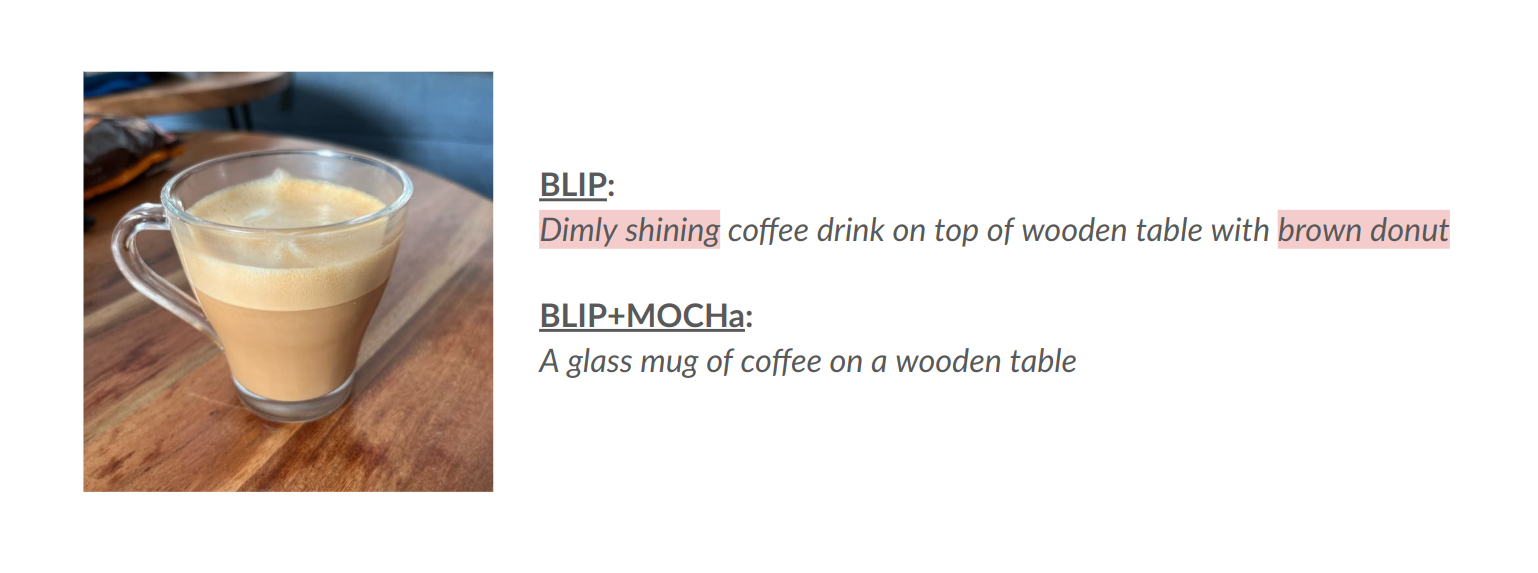Mitigating Open-Vocabulary Caption Hallucinations
While recent years have seen rapid progress in image-conditioned text generation, image captioning still suffers from the fundamental issue of hallucinations, namely, the generation of spurious details that cannot be inferred from the given image. Existing methods largely use closed-vocabulary object lists to mitigate or evaluate hallucinations in image captioning, ignoring the long-tailed nature of hallucinations that occur in practice. To this end, we propose a framework for addressing hallucinations in image captioning in the open-vocabulary setting. Our framework includes a new benchmark, OpenCHAIR, that leverages generative foundation models to evaluate open-vocabulary object hallucinations for image captioning, surpassing the popular and similarly-sized CHAIR benchmark in both diversity and accuracy. Furthermore, to mitigate open-vocabulary hallucinations without using a closed object list, we propose MOCHa, an approach harnessing advancements in reinforcement learning. Our multi-objective reward function explicitly targets the trade-off between fidelity and adequacy in generations without requiring any strong supervision. MOCHa improves a large variety of image captioning models, as captured by our OpenCHAIR benchmark and other existing metrics. We will release our code and models.
PDF AbstractCode
Datasets
Introduced in the Paper:
 OpenCHAIR
OpenCHAIR




